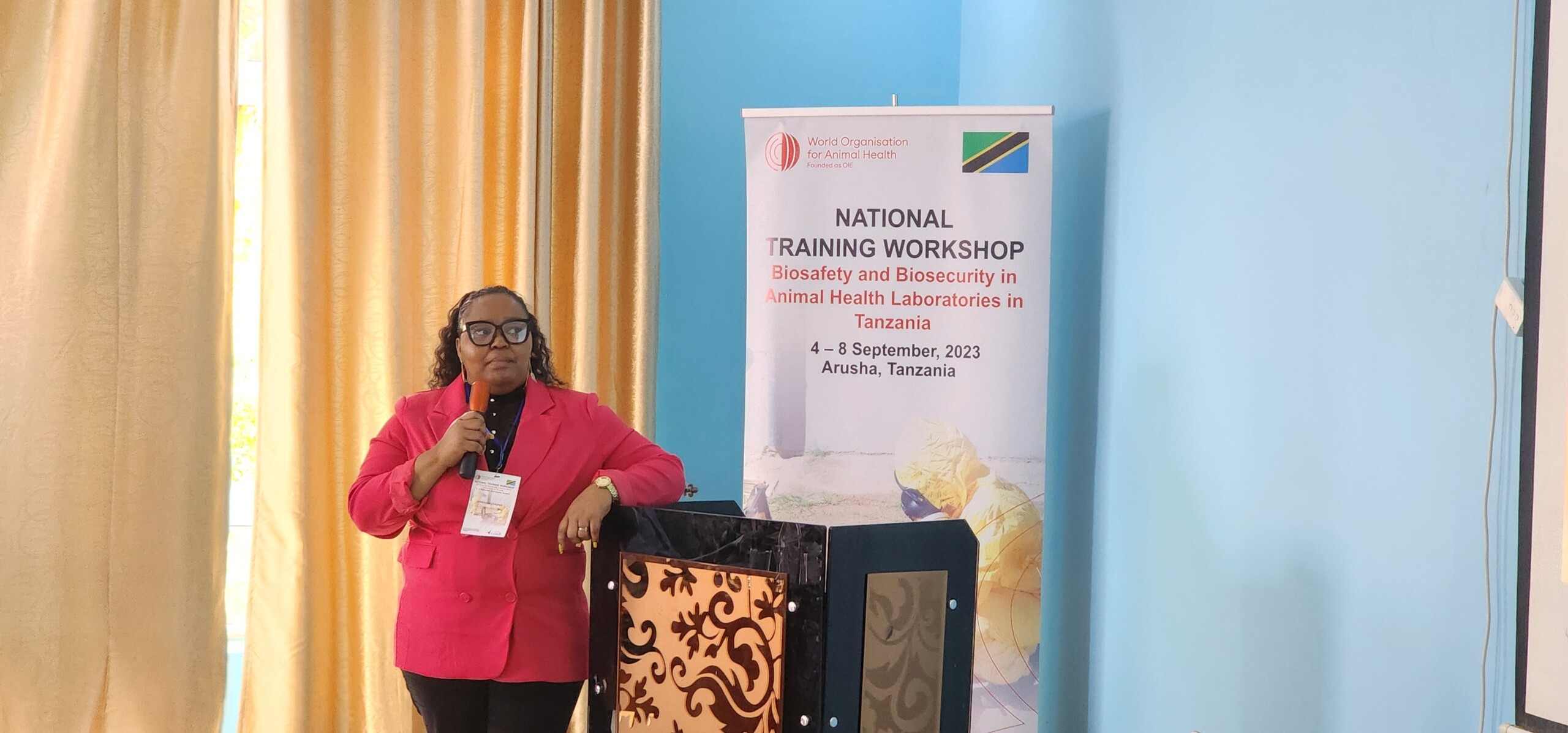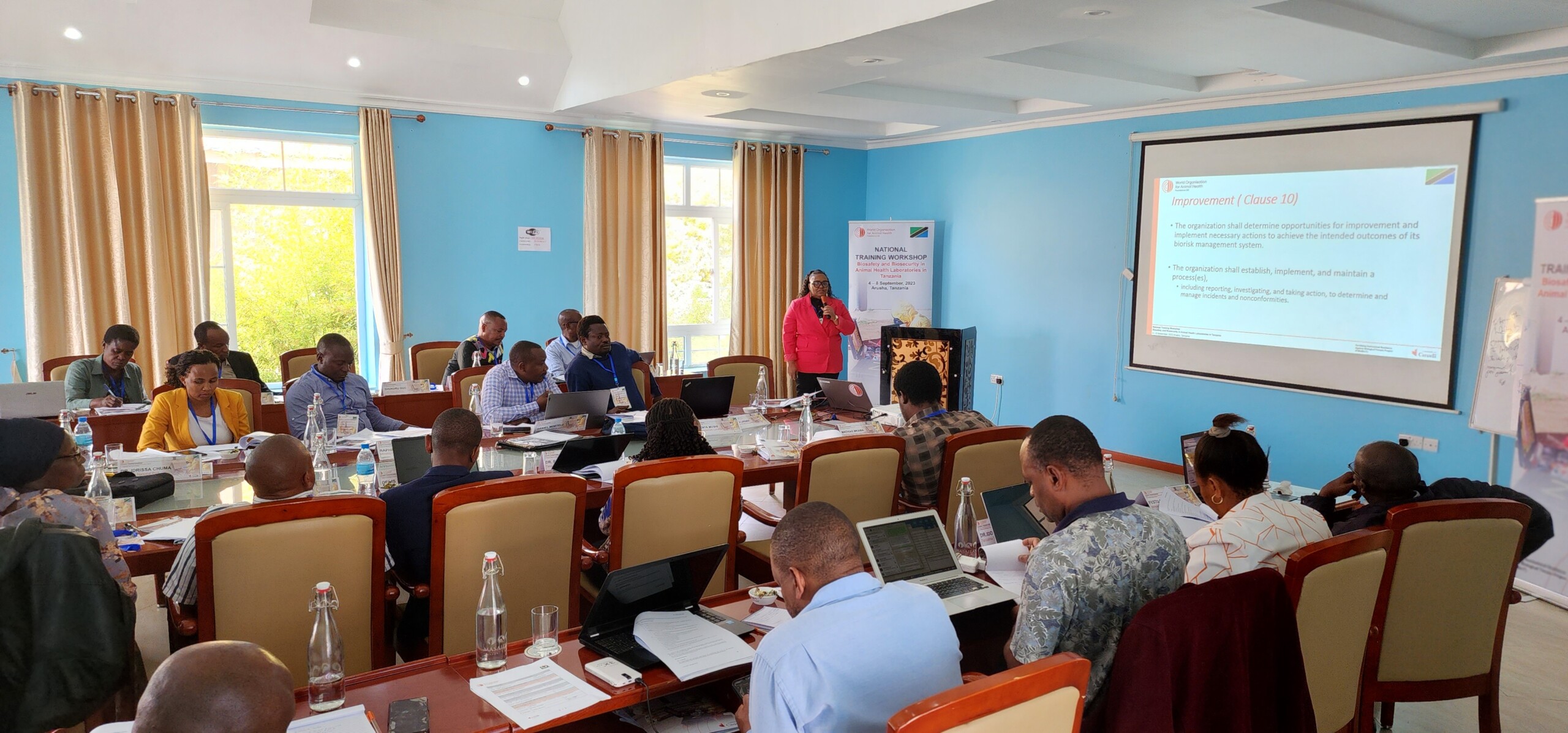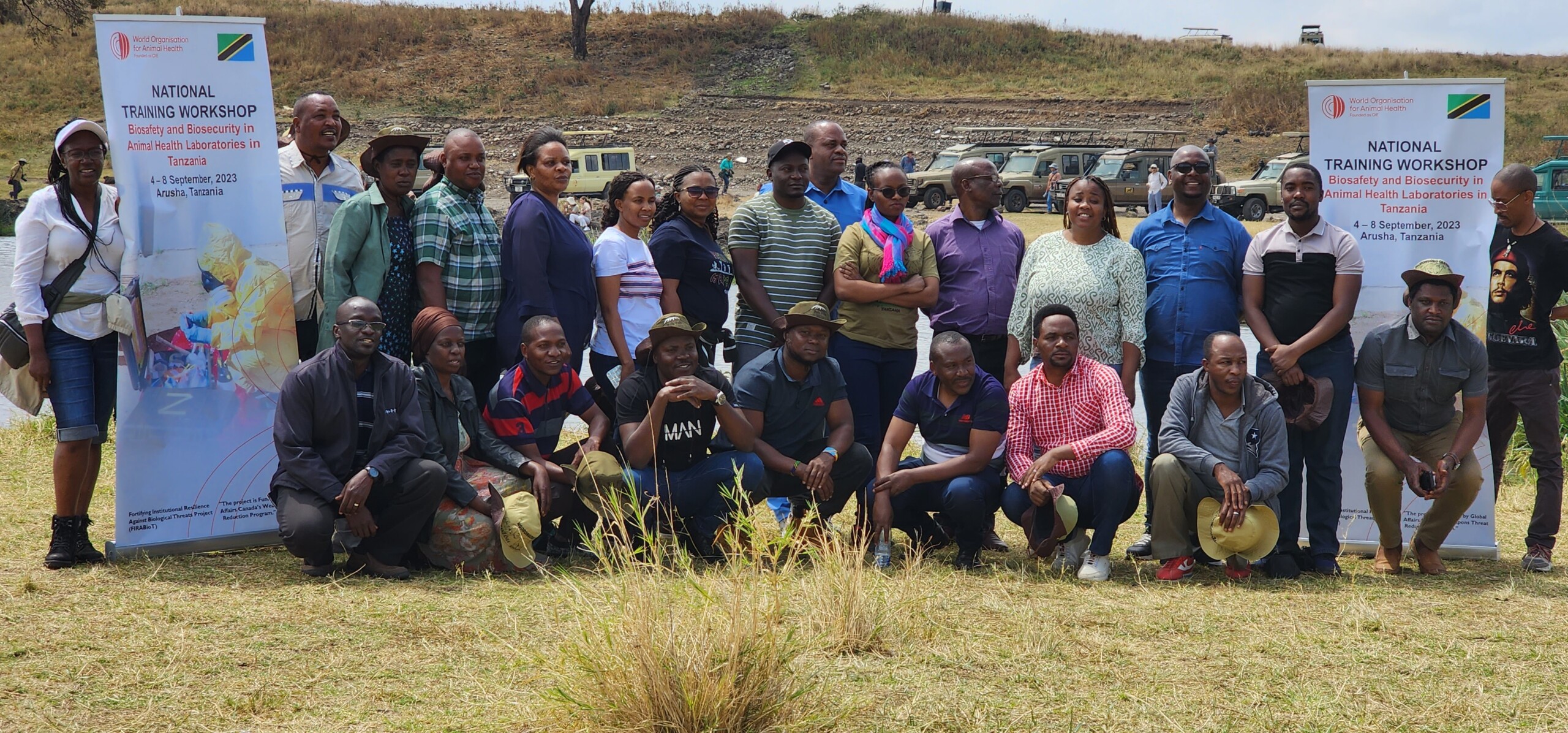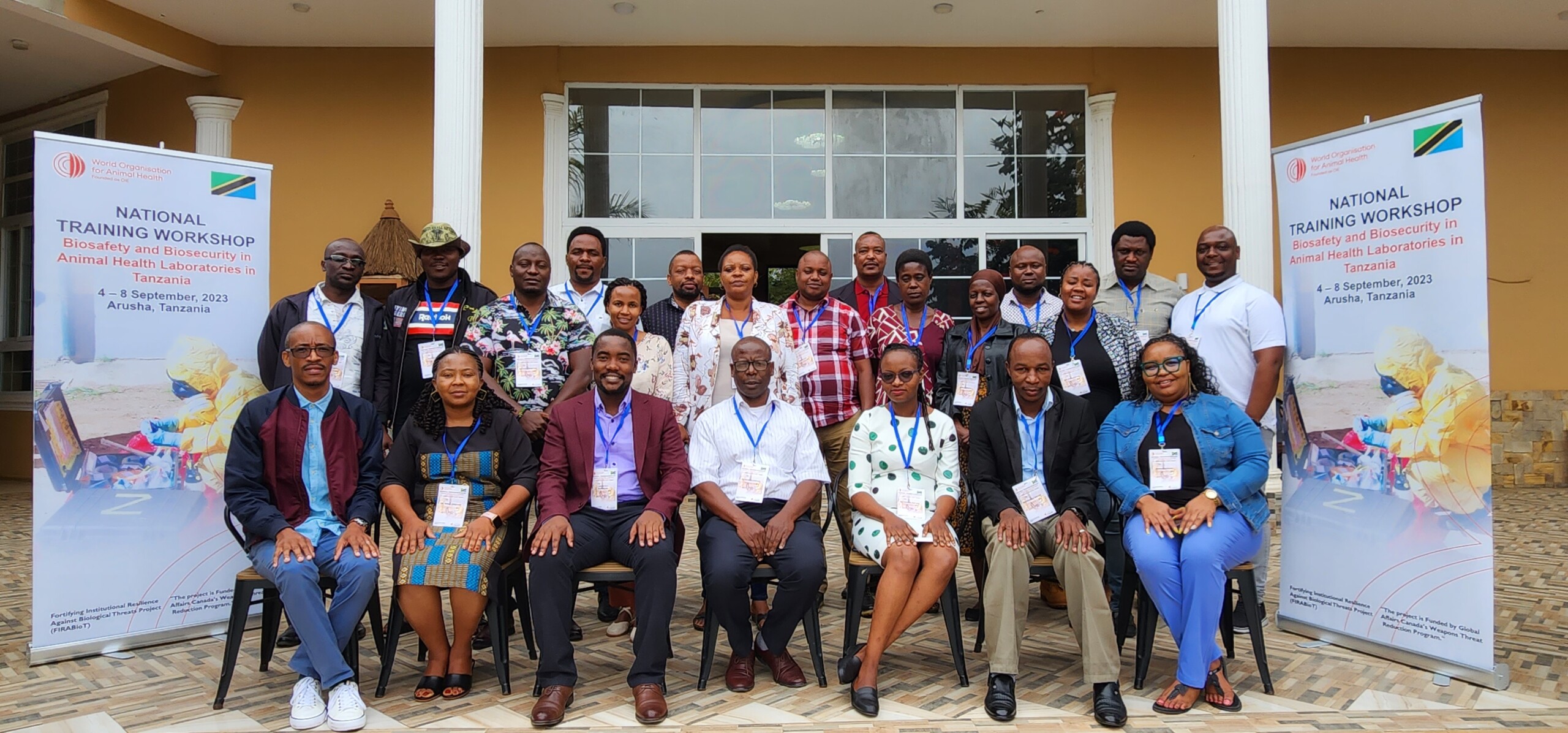
Tanzania’s efforts to bolster its biosecurity infrastructure and expertise have received a significant boost through the Fortifying Institutional Resilience Against Biological Threats (FIRABioT) Project, led by the World Organisation for Animal Health (WOAH). The Project, among other objectives, intends to improve its Members’ abilities to respond to emergencies (including agro-crime and agro-terrorism events) especially in Africa, through the implementation of capacity building activities in the areas of emergency management, disease intelligence, sustainable laboratories, and veterinary legislation. This workstream was launched in March 2023 with the beneficiary countries.
One significant milestone achieved through the FIRABioT Project is the comprehensive training in biosafety and biosecurity, which equipped personnel from Tanzania’s animal health laboratories and institutions with the skills needed to effectively combat biological threats, whether natural, accidental, or deliberate in origin. This intensive 5-day training took place in Arusha from 4 – 8 September 2023, with participation from key entities including the Ministry of Livestock and Fisheries, Tanzania Veterinary Laboratory Agency, the Center for Infectious Diseases and Biotechnology, Tanzania Wildlife Research Institute, Tanzania National Parks Authority, and Sokoine University of Agriculture.
Ms. Annah Motaung from ARC-OVI facilitating the session on improvement of biorisk management systems. Picture © I. Busuulwa (woah) 2023
Facilitating this vital training were experts from the Agricultural Research Council – Onderstepoort Veterinary Institute (ARC-OVI), a Collaborating Centre and Reference Laboratory of WOAH. They were joined by an Africa CDC regional subject matter expert on biorisk management and biological waste management. Together, they provided the participants with essential knowledge and skills in laboratory biosafety and biosecurity practices, aligning with WOAH’s Manual of Diagnostic Tests and Vaccines for Terrestrial Animals, as well as other international biorisk management standards.
The culmination of this workshop was marked by an insightful visit to the Ngorongoro Conservation Area, offering participants firsthand exposure to the intricacies of managing biosecurity risks within ecosystems involving humans, livestock, and wildlife, which are prevalent in this region. Such interactions underscore the heightened risk of disease spillovers, presenting a formidable challenge to animal health authorities in Tanzania, given that more than 30% of the nation’s territory is dedicated to wildlife conservation.
Participants pose for a group photo together with the facilitators in Ngorongoro Conservation Area. Picture © I. Busuulwa (woah) 2023
Tanzania’s animal health laboratories and institutions occupy a pivotal role in disease surveillance, outbreak investigation, and research aimed at reducing biological threats, highlighting the importance of Veterinary Services in this work. As the world faces growing global biosecurity challenges, it has become increasingly imperative for WOAH to bolster the capacities of Veterinary Services of its Members. This commitment to strengthening biosecurity capabilities underscores WOAH’s proactive approach to addressing global biosecurity threats.
Participants in the training expressed their deep appreciation to WOAH for its unwavering support and emphasised the importance of teamwork and transparent communication in tackling various aspects of biosafety and biosecurity. Over the next two years, WOAH will continue to support Tanzania, as well as the other beneficiary countries, through an array of capacity-building activities geared towards biothreat reduction under the FIRABioT Project, paving the way for a more secure and resilient future.
The FIRABioT project is funded by the Weapons Threat Reduction Program of Global Affairs Canada.





